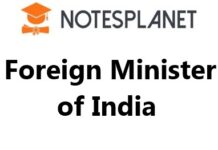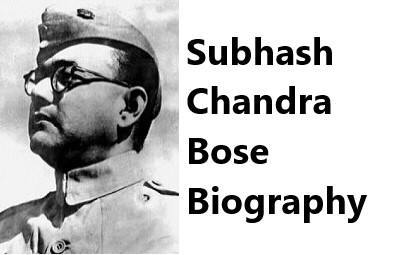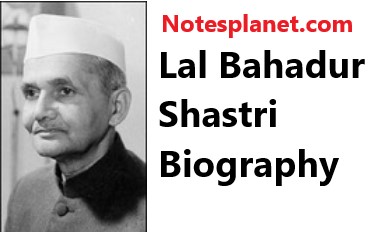Subhash Chandra Bose Biography
Subhash Chandra Bose Biography: Subhas Chandra Bose was an unmistakable Indian patriot pioneer who assumed a critical part in the nation’s battle for freedom contrary to English rule.
सुभाष चंद्र बोस एक अद्वितीय भारतीय देशभक्त नेता थे, जिन्होंने अंग्रेजी शासन के खिलाफ देश की आजादी की लड़ाई में महत्वपूर्ण भूमिका निभाई।
Early Life: प्रारंभिक जीवन
Born: January 23, 1897, in Cuttack, Orissa, British India (present-day Odisha, India).
जन्म: 23 जनवरी, 1897, कटक, उड़ीसा, ब्रिटिश भारत (वर्तमान ओडिशा, भारत) में।
Family Background: Subhas Chandra Bose came from a well-educated and affluent Bengali family. His father, Janakinath Bose, was a prominent lawyer, and his mother, Prabhavati Devi, came from a family of distinguished scholars.
पारिवारिक पृष्ठभूमि: सुभाष चंद्र बोस एक सुशिक्षित और समृद्ध बंगाली परिवार से थे। उनके पिता, जानकीनाथ बोस, एक प्रमुख वकील थे, और उनकी माँ, प्रभावती देवी, प्रतिष्ठित विद्वानों के परिवार से थीं।
Education: शिक्षा
Subhas Chandra Bose studied at Cambridge University in England, where he excelled academically. However, he was deeply influenced by the nationalist movement in India, which motivated him to return to his homeland and participate in the struggle for independence.
सुभाष चंद्र बोस ने इंग्लैंड के कैम्ब्रिज विश्वविद्यालय में अध्ययन किया, जहां उन्होंने अकादमिक रूप से उत्कृष्ट प्रदर्शन किया। हालाँकि, वह भारत में राष्ट्रवादी आंदोलन से गहराई से प्रभावित थे, जिसने उन्हें अपनी मातृभूमि में लौटने और स्वतंत्रता के संघर्ष में भाग लेने के लिए प्रेरित किया।
Subhash Chandra Bose
Entry into Politics: राजनीति में प्रवेश
Bose joined the Indian National Congress (INC) in the early 1920s and quickly rose through the ranks due to his dedication and leadership qualities.
बोस 1920 के दशक की शुरुआत में भारतीय राष्ट्रीय कांग्रेस (आईएनसी) में शामिल हुए और अपने समर्पण और नेतृत्व गुणों के कारण तेजी से कांग्रेस में आगे बढ़े।
He served as the Mayor of Calcutta (now Kolkata) from 1930 to 1931.
उन्होंने 1930 से 1931 तक कलकत्ता (अब कोलकाता) के मेयर के रूप में कार्य किया।
Differences with Gandhi and Congress: गांधी और कांग्रेस से मतभेद
Despite his initial association with the INC, Bose had ideological differences with Mahatma Gandhi’s non-violent approach.
कांग्रेस के साथ अपने शुरुआती जुड़ाव के बावजूद, बोस के महात्मा गांधी के अहिंसक दृष्टिकोण से वैचारिक मतभेद थे।
He believed in taking more radical measures to achieve independence and thus resigned from the INC in 1939.
वह स्वतंत्रता प्राप्त करने के लिए और अधिक कट्टरपंथी कदम उठाने में विश्वास करते थे और इस प्रकार 1939 में कांग्रेस से इस्तीफा दे दिया।
Formation of the Forward Bloc: फॉरवर्ड ब्लॉक का गठन
Bose then founded the Forward Bloc in 1939, a political group advocating a more aggressive approach toward attaining independence.
इसके बाद बोस ने 1939 में फॉरवर्ड ब्लॉक की स्थापना की, जो एक राजनीतिक समूह था जो स्वतंत्रता प्राप्त करने की दिशा में अधिक आक्रामक दृष्टिकोण की वकालत करता था।
He sought help from Axis powers during World War II to overthrow British rule in India.
उन्होंने द्वितीय विश्व युद्ध के दौरान भारत में ब्रिटिश शासन को उखाड़ फेंकने के लिए धुरी राष्ट्रों से मदद मांगी।
Subhash Chandra Bose Biography
INA and Subhas Chandra Bose’s Role in World War II: द्वितीय विश्व युद्ध में आईएनए और सुभाष चंद्र बोस की भूमिका
Bose sought support from Nazi Germany and Imperial Japan to raise an army to fight against the British.
बोस ने अंग्रेजों के खिलाफ लड़ने के लिए सेना जुटाने के लिए नाजी जर्मनी और इंपीरियल जापान से समर्थन मांगा।
The Indian National Army (INA) was formed with the support of the Axis powers, and Bose assumed leadership, with the famous slogan “Give me blood, and I shall give you freedom.”
भारतीय राष्ट्रीय सेना (आईएनए) का गठन धुरी शक्तियों के समर्थन से किया गया था, और बोस ने प्रसिद्ध नारे “मुझे खून दो, और मैं तुम्हें आजादी दूंगा” के साथ नेतृत्व ग्रहण किया।
Death and Legacy: मृत्यु और विरासत
Subhas Chandra Bose’s fate remains a subject of mystery. He died in a plane crash on 18 August 1945, in Taipei, Taiwan.
सुभाष चंद्र बोस का भाग्य रहस्य का विषय बना हुआ है। 18 अगस्त 1945 को ताइपेई, ताइवान में एक विमान दुर्घटना में उनकी मृत्यु हो गई।
While the official version is that he died due to injuries sustained in the crash, there have been various conspiracy theories suggesting otherwise.
जबकि आधिकारिक संस्करण यह है कि दुर्घटना में लगी चोटों के कारण उनकी मृत्यु हो गई, विभिन्न षड्यंत्र सिद्धांत अन्यथा सुझाव दे रहे हैं।
Subhash Chandra Bose Biography In Hindi
Bose’s contributions to India’s struggle for independence, especially his role in forming the INA, have made him a revered figure in Indian history.
भारत के स्वतंत्रता संग्राम में बोस के योगदान, विशेष रूप से आईएनए के गठन में उनकी भूमिका ने उन्हें भारतीय इतिहास में एक प्रतिष्ठित व्यक्ति बना दिया है।
He is often referred to as “Netaji” (meaning “Respected Leader” in Hindi) by the Indian people.
भारतीय लोगों द्वारा उन्हें अक्सर “नेताजी” (हिंदी में “सम्मानित नेता”) कहा जाता है।
Important Links
Facebook: Notesplanet
Instagram: Notesplanet1
Tags: Subhash Chandra Bose biography in Hindi , Subhash Chandra Bose biography in English , Netaji Subhash Chandra Bose biography , Subhash Chandra Bose biography in odia pdf , Subhash Chandra Bose short biography in English , Subhash Chandra Bose biography in English pdf , Subhash Chandra Bose biography in Telugu , Netaji Subhash Chandra Bose biography in Hindi , Netaji Subhash Chandra Bose biography in Hindi language
















